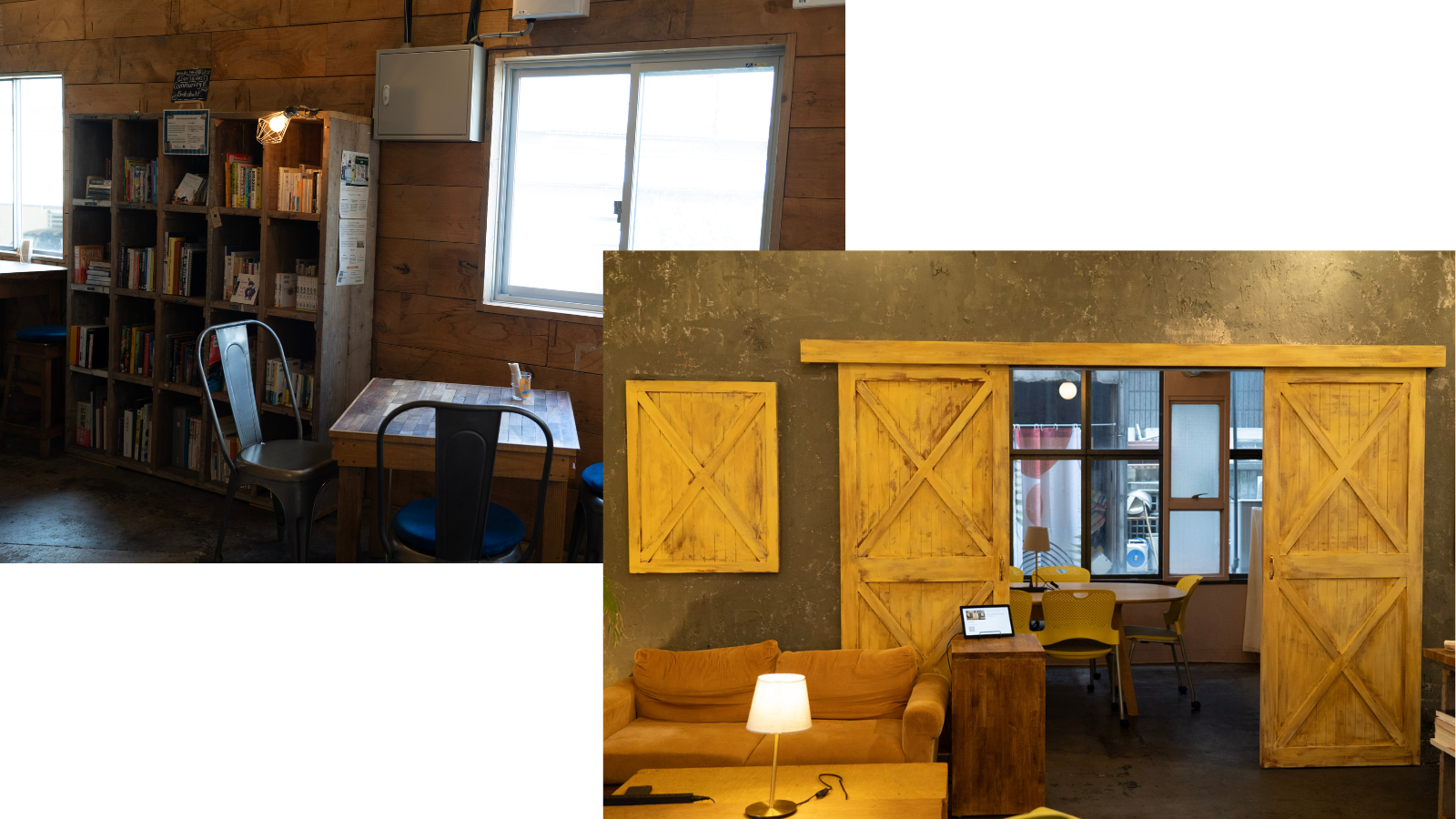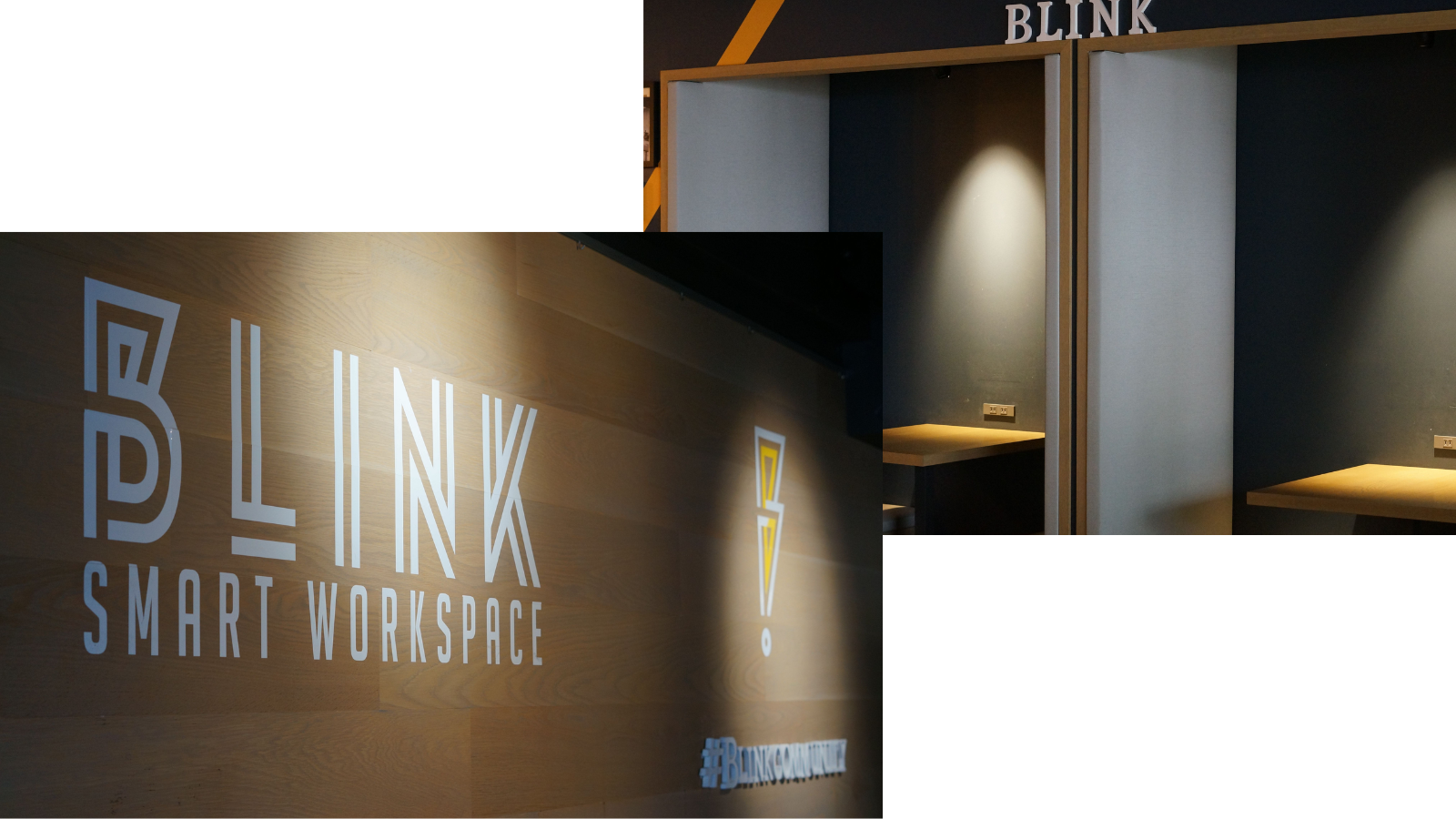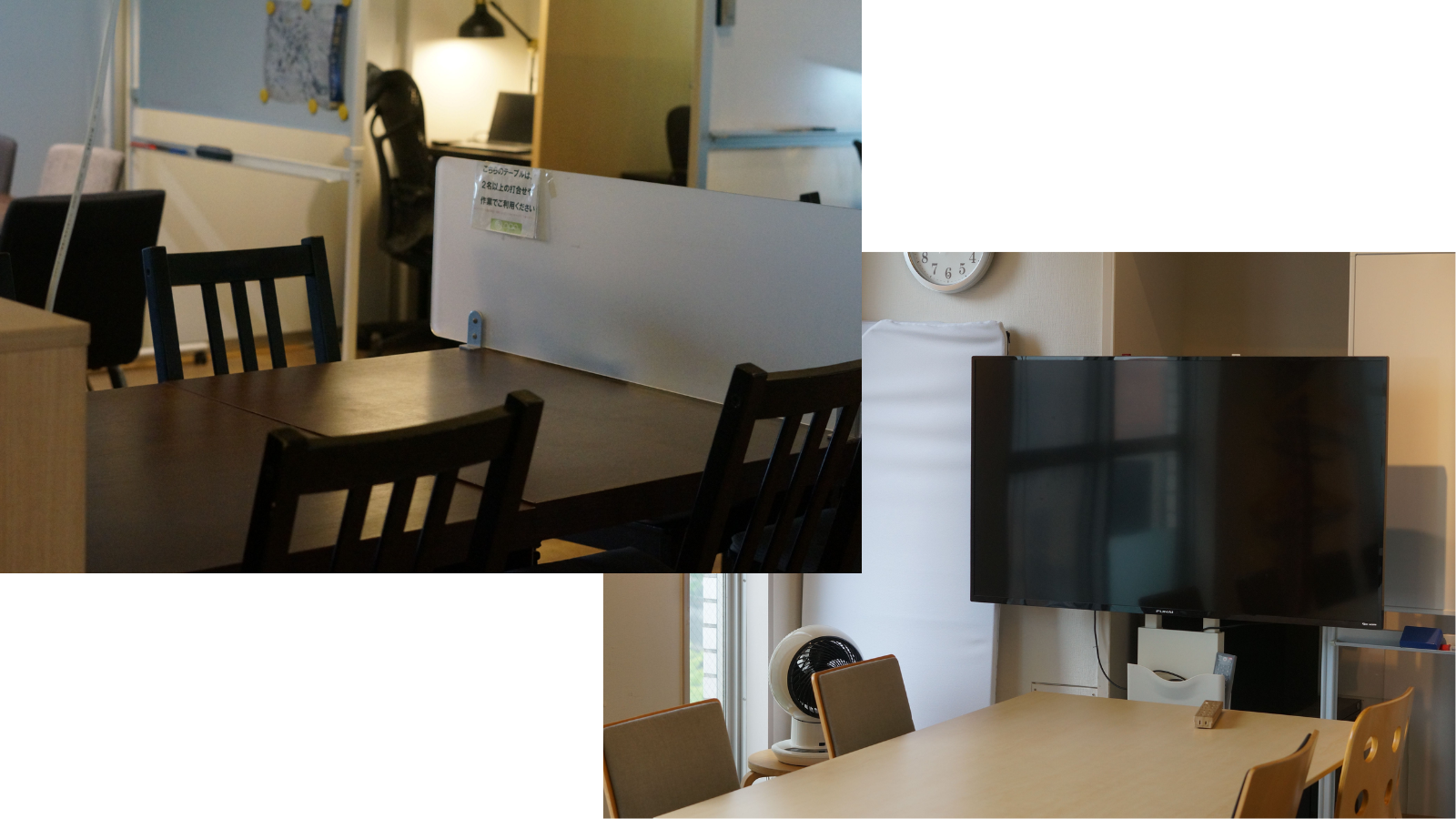Stay updated with the latest news, exclusive insights, and more.
%20(1).png)
Tokyo's coworking culture is evolving rapidly, shaped by global entrepreneurship and a new generation of flexible workers.
From startup incubators to hotel-integrated work lounges, Japan's capital is now home to a diverse ecosystem of spaces designed to accommodate global founders, digital nomads, and cross-border teams.
In the first edition of this series, we went to visit 4 coworking spaces in Tokyo to see what they offer over just deskspace and Wi-Fi.

Impact HUB has branches globally, so it’s no surprise that the Tokyo branch tends to keep a global view of things (you can read our interview with their Tokyo CEO here). Impact HUB’s ‘Impact Passport’ system also allows visits to facilities in other countries for up to 3 days.
The first impression on entering is that it doesn’t feel like a coworking space. The building used to be a print factory, and the interior is open and has a post-industrial charm. Located in a residential area in Meguro, it’s not the easiest place to find—however the area’s many restaurants and bars for a post-work drink more than make up for the fact.
On the first floor, there is a cafe open to the public—not just for members, although you do need membership if you want to use the power outlets—with food and drink for sale, that members get at a discount. This space is also used as an exhibition space for projects, and has a community bookshelf.
The majority of the first floor, however, is taken up by 30-40 seats of hotdesk coworking space, which can be used as event space on the weekend. The second floor holds primarily assigned desks and private rooms.
The employee giving us the tour said that approximately 60% of registrants are Japanese, but on the day it seemed that about 70% were non-Japanese of various types. Speaking English is common and can be heard throughout the cafe and coworking space; in fact, you can get through the entire registration process without using Japanese at all. This creates a very international environment and is comfortable for non-Japanese speakers, with bilingual staff available.
Events are frequent, with members-only events and those open to the public. Cultural workshops are held at least every two weeks, with bigger programs such as networking events and guest speakers being held more infrequently. In those events, the rate of non-Japanese is so high and it is almost always held in English.

・Private rooms (6 rooms)
・Meeting rooms (1 room on each floor, reservations available, low congestion)
・Kitchen, refrigerator, watercooler, unlimited coffee and tea
・Copier, whiteboard, adjustable desks, and desktop PCs available
・Free desk: ¥29,700/month〜
・Fixed desk: ¥55,000/month〜
・Fixed room/team desk/corporate registration/mailbox/mail forwarding/lockers available for additional fee
Weekdays 9:00 am to 10:00 pm
Sat, Sun, and holidays 10:00 am to 8:00 pm
24 hours for fixed desk plans and above
1-11-3 Meguro 2-chome, Meguro-ku, Tokyo 153-0063 (1st floor of printing factory)
10-minute walk from Meguro Station (JR Yamanote/Tokyu Meguro/ Tokyo Metro Nanboku/ Toei Mita)

Fabbit was originally established as a facility to support start-ups, venture companies, and corporate second startups, to promote business matching between these companies and large corporations. It has eight branches in Tokyo, as well as branches in Osaka, Okayama, Hiroshima, Kagawa, and Fukuoka. Actually, when we visited for the first time we went to another branch by mistake—it was only 10 minutes walk away!
The Kyobashi branch has a mix of coworking spaces and private offices, while other branches might lean more (or exclusively) one way or the other. When we visited, it was partly under construction to divide one big private room into several smaller ones, which will bring their total to 15.
Most of the customers were Japanese, so those looking for an international environment would be better off elsewhere (some of the employees can speak English, however). The overall impression is of a place for quiet and serious work, not socializing. If that sounds like the kind of place you are looking for, Fabbit is a good choice because of the number of branches at prime locations in the main business areas of Tokyo and other cities.
Fabbit can also introduce customers to professional consultants, like lawyers and accountants, but most of these are only available in Japanese.

・Private rooms (6 rooms, currently increasing to 15)
・Meeting rooms (1 per floor, reservation required, low congestion)
・Kitchen, refrigerator, unlimited coffee and tea
・Microwave and dishwasher available
・Copier, whiteboard, adjustable desks, and desktop PCs available
・Monitors (2 per desk), free drinks, power outlets, and Wi-Fi
・Optional services: corporate registration, mail reception/forwarding, dedicated phone number, fax, lockers
・Free desk: ¥22,000/month〜
・Private room: ¥105,600–¥316,800/month
・Virtual office: ¥11,000/month〜
・Day pass: ¥2,200/day
・Weekdays: 9:00 am – 6:00 pm (for day pass users)
・Monthly members (Free desk / Private room): 24-hour access
・Event space: weekdays 9:00 am – 6:00 pm
2F, Central Building, 1-1-5 Kyobashi, Chuo-ku, Tokyo 104-0031
・12-minute walk from Tokyo Station (Yaesu Underground Exit 24)
・11-minute walk from Kyobashi Station (Exit 7, Tokyo Metro Ginza Line)
・11-minutes walk from Takaracho Station (Exit A7, Tokyo Metro Asakusa Line)
・11-minutes walk from Nihonbashi Station (Exit B6, Tokyo Metro Tozai Line)

Blink Smart is an international coworking space which caters to startups, entrepreneurs, and freelancers. They partner with various support professionals, such as payroll, visa, and banking support specialists. They hold regular social events, which draws an international group of usually around 60 people, to get the chance to mingle with other entrepreneurs to share their ideas and stories.
All of the employees and around half the customers on the day we went appeared to be non-Japanese.
It has three floors, with each floor has a different atmosphere such as a focussed work to more social. The first floor has a cafe with a variety of tasty menu items like smoothies and fancy coffees. Their mission is “happy to come every morning,” and starting every day with delicious coffee in a comfortable environment is part of that. The Roppongi location, with its many bars and restaurants, covers the post-work side of things, and it is right next to a park for mid-day decompression. However, it is not close to the station, so pays for the calm neighbourhood in a loss of convenience, and this might be an issue if you want to invite clients. Also, while the cafe and park are nice, the building itself doesn’t have many windows, so it’s a bit gloomy.
.png)
・Private offices (2–16 person rooms across multiple floors, fully enclosed and available 24/7)
・Meeting rooms (available on B1F, 2F, and 3F; 4–6 person capacity; monitor included)
・Phone booths (soundproof, available on all floors for private calls and online meetings)
・Kitchen and pantry (available on 4F; refrigerator, microwave, coffee machine)
・Copier, printer, lockers, and secure access system
・Rooftop terrace and lounge area for informal meetings or breaks
・Event space (1F café lounge; hosts 200+ events annually)
・Pet-friendly workspace (rare in Tokyo; pets allowed in designated areas)
・Day pass: ¥2,200/day
・Half day pass (from 1:00 p.m.): ¥1,100/day
・Hot/ Fixed desk: ¥22,000/month〜
・Boarding Pass: ¥8,800/month〜
・Private office: ¥100,000/month〜
・Meeting room: ¥3,850/hour〜
・Phone booth: ¥550/hour〜
・Virtual office: Price upon request, but around ¥5,500/month〜 (includes corporate registration, mail reception/forwarding)
・Monthly members: 24-hour access
・Drop-in users: Weekdays 9:00 am – 6:00 pm
・Event space: Available upon request (flexible hours)
3-1-6 Motoazabu, Minato-ku, Tokyo 106-0046
・13-minute walk from Roppongi Station (Tokyo Metro Hibiya Line / Toei Oedo Line, Exit A1)
・12-minute walk from Azabu-Juban Station (Tokyo Metro Namboku Line / Toei Oedo Line, Exit 4 or 7)
・3-minute walk from Roppongi Hills WEST WALK entrance

At pao pao, they aim to combine a relaxed atmosphere created by open space with the energy induced by those around you, leading to natural interaction, inspiration, and new business opportunities.
To promote this, pao pao provides a range of spaces, such as freespace, meeting rooms, study rooms, and semi-private rooms. As a smaller coworking space, obvious emphasis has been placed on making it cozy and welcoming to foster a sense of community. For example, they put out free snacks in the communal area, and they have frequent community events like Takoyaki parties.
While cozy and welcoming, the small size can lead to some potential issues. The meeting rooms and phone booths are only separated by partitions, so noise might be a problem. Also, while they have an English version of their flyer and some of the staff can speak English, most of the customers are Japanese and there are not many opportunities in English.
Your milage may vary, but if you’re looking for a comfortable and social environment to work and you can speak Japanese, pao pao checks a lot of boxes.

・Private booths and semi-private rooms (for focused work, meetings, or lessons)
・Meeting rooms (available for up to 3 people)
・Open lounge space (for casual conversations, remote work, or breaks)
・Copier and printer
・Microwave, refrigerator, and basic kitchen amenities
・Quiet phone space and Zoom-friendly areas available
・Desktop rental
・Drop-in: ¥600/hour〜
・Day pass: weekday ¥2,400, weekend ¥1,800 (bulk discount available)
・Monthly: weekend ¥5,500/month / weekday ¥11,000~
・Meeting room: ¥1,980/hour〜
・Registration, locker, and mail box for additional fee
・Weekdays: 9:00 am – 10:00 pm
・Weekends & holidays: 10:30 am – 7:00 pm
BN Building 5F, 2-8-5 Higashi-Gotanda, Shinagawa-ku, Tokyo 141-0022
・3-minute walk from Gotanda Station (East Exit)
Japan arrived late to the coworking space scene, but Tokyo is still one of the biggest, most active business hubs on the planet and has caught up quickly. With the wealth of options available, the perfect coworking space for you almost certainly exists somewhere in the city.
If none of these four sparked joy, stay tuned for the next in this series, where we will be staying in Tokyo and reviewing another batch of diverse coworking spaces. Maybe one of them will be more your speed?